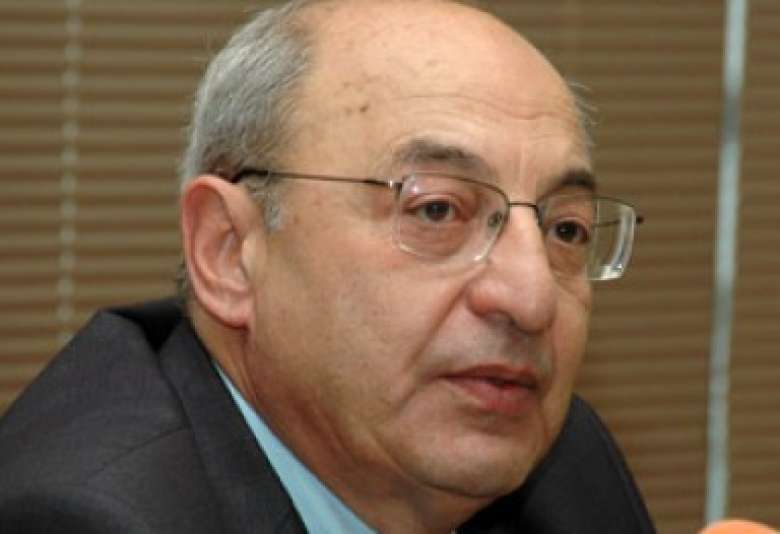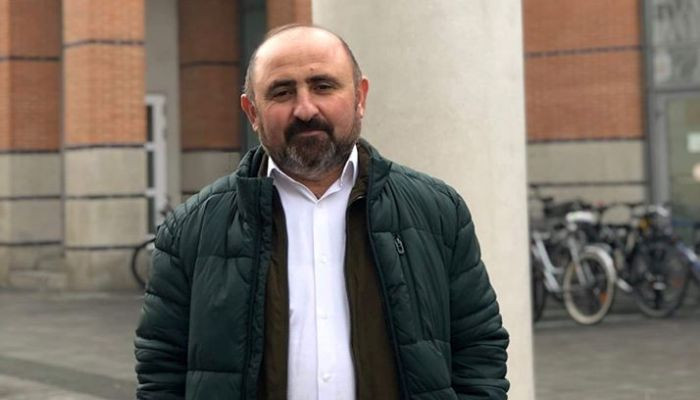In an interview with 1in.am, Armenian Prime Minister Nikol Pashinyan assessed the results of the recent war in Nagorno-Karabakh.
He questioned the capabilities of Russian-made weapons, and according to him, Iskander ballistic missiles exploded with only a 10% success rate.
The Armenian Ministry of Defense declined to comment on the Prime Minister's ambiguous statement about the success of the Iskander system during last year’s 44-day war between Armenia and Azerbaijan over Nagorno-Karabakh.

However, after his statements, Pashinyan’s comments were quickly mocked by Russian media and military experts.
Viktor Zavarzin, Deputy Chairman of the Russian State Duma Committee on Defense, called Pashinyan's statement an absolute lie.
One of the designers of the Iskander missile, Vladimir Kovalev, urged the Armenian Prime Minister to end his ignorance as soon as possible.
In fact, Armenia’s first Prime Minister after the country’s independence from the Soviet Union, Vazgen Manukyan, said “you have to either be an idiot or an enemy to make such a statement about the Iskander missile system."

The Deputy Chief of the Armenian General Staff, Tiran Khachatryan, laughed when he was asked about Pashinyan’s statements about the Russian-made weapons.
In the end, Pashinyan backtracked on his Iskander comments, with his Press Secretary Mane Gevorgyan saying “The Prime Minister was not properly informed about the situation with the Iskander.”
This was followed by the Kremlin expressing satisfaction with Gevorgyan’s statement and a conversation between Pashinyan and Russian President Vladimir Putin.
Kremlin spokesperson Dmitry Peskov said that the Armenian Prime Minister was misinformed about the Iskander missiles.
It is highly unlikely that Pashinyan was misinformed, despite Russia’s reconciliatory statement.
The Iskander missile system is designed to eliminate army bases, command and control units, missile complexes, fighter jets and helicopters.
The main advantages of the system are strategic mobility, hidden on-call and missile launch capabilities, automatic task calculation and entry, and radio-electronic response conditions.
Yet, despite these impressive specs, the Iskander system was only used a total of three times during the war, and according to Armenian journalist Tatul Hakobyan, citing a high-ranking military source, said that Iskander missiles were:
“fired towards a completely pointless direction, at a time when the outcome of the war was decided, the outcome of Shushi was also decided.”

Although Pashinyan continually stressed that last year’s war was a “battle for survival,” he never fully engaged in the war effort as he did not mobilize 200,000 reservists.
In fact, although government and military officials were calling for diaspora Armenians to fight in Artsakh, most volunteers were only put on a list and never transported to Armenia.
Hovik Kasapian, a leading member of the Armenian National Committee of Greece, also said that many ethnic Greeks had volunteered to fight in Artsakh but were rejected because Armenia did not want to put Athens in an awkward diplomatic situation.
One would expect in a “battle for survival” that all volunteers would be welcomed, just as the Kurdish People’s Protection Units (YPG) in Syria accepted all foreigners into their ranks.
Pashinyan defended the necessity of the highly controversial ceasefire by claiming that Artsakh did not have enough manpower to defend against the Azerbaijani military, but Armenia had not even come close to using all the resources available.
In the political blowback to Pashinyan’s failure to deal with the Turkish-sponsored invasion of Nagorno-Karabakh, the Armenian military, police, several mayors and other high ranking and notable officials and former officials called for the his resignation.
Pashinyan came to power in 2018 on the back of pro-liberal/EU/NATO revolution to oust “pro-Russia oligarch” Merzhir Serzhin.
A report by EurAsia Daily documented Pashinyan’s appointments after coming to power, especially those associated with NGO’s funded by famous Russophobe billionaire George Soros.
Effectively, Pashinyan gained popularity on the back of an anti-Russia campaign, adopting the methods used by Baltic states to pivot to the West and reject Moscow.

However, Armenia is not in the European Union and is in an extremely dangerous neighborhood, wedged between Turkey, Azerbaijan, Georgia and Iran, not the likes of Finland and Sweden like the Baltic states.
For Pashinyan and his supporters, the folly of their obsession in rejecting everything Russian and pivoting towards Atlanticist power structures, despite being in a very dangerous and volatile Caucasus, came to a shocking realization.
This realization came when the Azerbaijani military, Turkish special forces and Syrian mercenaries began their invasion of Nagorno-Karabakh on September 27, 2020.
All efforts to pursue an anti-Russia agenda and move towards the West came to naught once the invasion began and the European Union, Washington and NATO were completely disinterested.
In the end, it was Russia that ended the conflict whilst saving Armenian administration over the Soviet-era borders of Nagorno-Karabakh.
However, with the political blowback because of his own incompetency, Pashinyan attempted to shift some of Armenia’s military failures onto Russia by falsely claiming that the Iskander system had only a 10% success rate.
This suggests that despite Armenia having experienced a catastrophic loss only a few months ago after receiving no support from the West, Pashinyan has no interest in ending his country’s path towards Western liberalism and continues attacks against Moscow.
Most Armenians in the post-war period realised that the oligarchs, despite their own set of problems, successfully defended Armenian interests and Nagorno-Karabakh from Azerbaijan and Turkey, something that Pashinyan catastrophically failed in.
The Armenian administration in Nagorno-Karabakh realise this reality and are even contemplating making Russian an official language in the de facto republic.
Meanwhile, Pashinyan has demonstrated that he is not interested in retreating from his Russophobia despite the Armenian people’s demand that he resigns.


